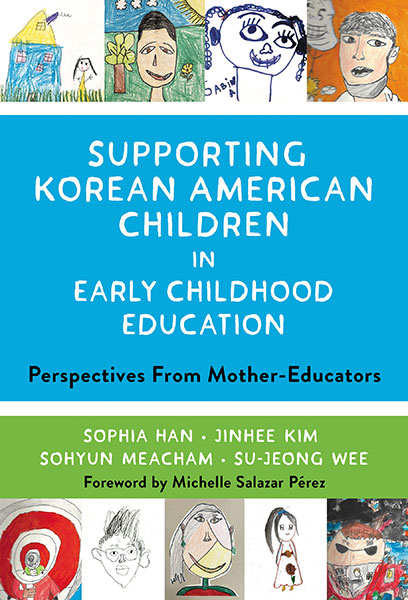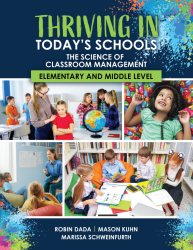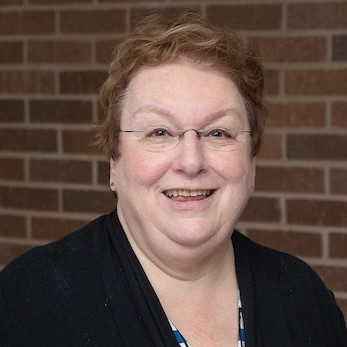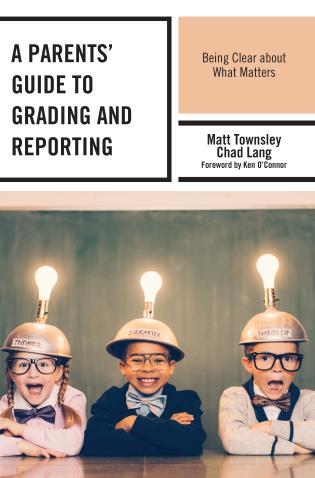Making Their Mark
Scholarly Spotlight
College of Education faculty regularly add to the expertise and understanding of current and future students and educators through scholarly endeavors which include authoring and editing books, writing journal articles and book chapters. This issue of Premier highlights three recent publications and their authors.
Supporting Korean American Children in Early Childhood Education: Perspectives From Mother-Educators
By Sohyun Meacham (UNI) and Sophia Han, Jinhee Kim and Su-Jeong Wee

Book in brief: Early childhood professionals can use this one-of-a-kind work to better serve Korean American and other Asian American children in the United States. Four transnational mother-educators share the lived experiences of Korean American children and their families through candid and vivid narratives that counter stereotypical and prejudicial beliefs about these communities. Topics include parenting beliefs and practices, naming practices, portrayals in children’s picturebooks, translingual home practices and responses to microaggressions. The text raises awareness about various dynamics within the Korean American community for a more nuanced discourse. The authors bring a wealth of experiences as former early childhood educators, first-generation Korean American immigrants, current teacher educators working with pre- and in-service teachers, and researchers in different states, as well as mothers of second-generation children.
What prompted you to write this book? What needs does this address? We wrote and published this book in response to our personal and collective experiences as Korean Am

erican mother-scholars, especially after the tragic Atlanta shooting in March 2021. We aim to shed light on oppressive environments, challenge the status quo and combat stereotypes and single narratives by sharing diverse stories, counteracting long-standing marginalization. By providing a platform for authentic experiences, we advocate for the recognition of Korean American children and families as competent American citizens. Our goal is to raise awareness among educators and the wider public, fostering inclusive and supportive educational practices. Additionally, we hope to inspire coalition-building with other minoritized groups to combat racial injustices collectively. Through this book, we aim to inform early childhood educators, offering resources and strategies for culturally sustaining practices and encouraging systemic change to better support Korean American and other Asian American communities.
Audience: Early childhood educators and professionals and teacher educators; researchers and scholars interested in multicultural education and social justice, parents and families, policy makers and educational equity advocates and students.
What do you hope readers of this book gain by reading/using? I hope readers gain a deeper understanding of the unique challenges faced by Korean American children and families, including experiences of racism and microaggressions. I aim for readers to develop empathy and awareness, recognizing the diversity within Asian American communities and moving beyond stereotypes and single narratives. I hope educators and professionals in early childhood education will gain practical strategies and resources to create more inclusive and supportive learning environments. Ultimately, I want readers to feel empowered to advocate for social justice, equity and systemic change in their respective fields and communities.
Thriving in Today’s Schools: The Science of Classroom Management Elementary and Middle Level
By Robin Dada, Mason Kuhn and Marissa Schweinfurth

Book in brief: This book focuses on developing a classroom environment that is welcoming and inclusive to support relationships between teacher and student and between student and student. Teachers learn to build relationships with the child and family and all students with the support they need to self regulate and manage their success in school. The book features a pyramid of strategies that are useful in large group settings and strategies designed for single students who need more support. Teachers learn to work with students who have experienced trauma and support their development towards thriving in school.
What prompted you and your colleagues to write this book? What needs does this address? A lot of great books exist on classroom management, but most are encyclopedic in nature. The purpose behind this book is the desire to focus on life in the classroom and meeting the needs of all children who are a part of the classroom students teach.
Audience: Teachers and parents, as well as students preparing to be teachers.
What do you hope readers of this book gain by reading/using? We hope that our developing and experienced teachers gain the perspective of an inclusive classroom that welcomes all children regardless of their culture, background, gender or past experience in schools. We hope that they understand that students do not act out to create chaos in classrooms, but because they have a need that has not yet been filled and that may need support of the teacher, specialists in the school and community and through a partnership with family and guardians.
 Robin Dada
Robin Dada
Department Head, Curriculum & Instruction, Interim Department Head, Special Education
 Mason Kuhn
Mason Kuhn
Associate Professor, Curriculum & Instruction

Marissa Schweinfurth
Instructor, Jacobson Center for Comprehensive Literacy
A Parents’ Guide to Grading and Reporting: Being Clear About What Matters
By Matt Townsley and Chad Lang

Book in brief: Whether resulting from the educational fallout of the COVID-19 global pandemic or merely challenging the status quo, more schools are transitioning their grading practices away from traditional points and percentages and toward 21st century grading practices such as standards-based and proficiency-based grading. A Parents’ Guide to Grading and Reporting: Being Clear About What Matters assists parents and guardians in understanding what is involved in 21st century grading and how to become better partners with educators in efforts to understand students’ strengths and areas for improvement.
What prompted you to write this book? What needs does this address? In the last century, few elements of the K-12 school experience have changed less than the role of grading. Fast forward — partially related to COVID-19 disruptions — more schools recently have transitioned to grading practices such as standards-based grading (SBG) and standards-referenced grading (SRG). Through conversations with school leaders and

parents across the country, we found out that parents do not often understand these changes in grading practices and how they may benefit their children. While a growing number of books have been published supporting educators in making these grading changes, no book has been written “specifically for parents” in the past 20 years. We wrote this book to unpack the perils of traditional grading and tenets of standards-based/referenced grading practices to provide a more common understanding for parents and educators today.
Audience: Parents with children in K-12 schools who are experiencing grading practices such as SBG and SRG.
What do you hope readers of this book gain by reading/using? We hope parents will feel empowered to have enhanced and more purposeful communication about their child’s learning both with their child and all school stakeholders. Moreover, we hope to improve the conversation for both parents and educators about prioritizing student learning over student earning. Understanding the purpose of SBG and SRG practices will reduce the likelihood of grades being bargained for as tokens of compliance, ultimately reducing any “us versus them” mentality.
